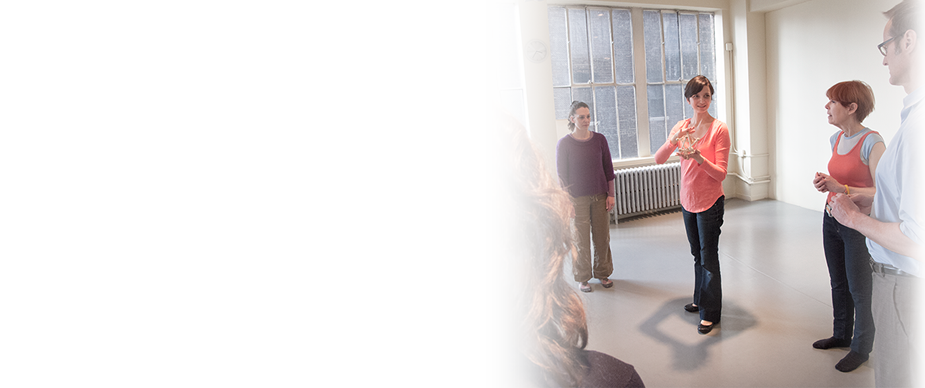This Isn't A Violin
/Melissa tong - melissatong.com
When you pick up a cup of coffee or a bottle of water, do you immediately tighten your upper arm and shoulder? Do you tighten them before you’ve even touched the object that you’re picking up? How about picking up a heavy backpack or a musical instrument?
A little trick that I’ve been using myself and suggesting to my students to help avoid strain and compression when picking up and holding objects is to first tell themselves that the object isn’t what it is. This may sound like an idea for a surrealist paining, but think of it as a way of suspending judgement and expectation, allowing for something new to happen.
An good example of this game came up in a lesson recently with my student, Melissa Tong. Melissa (pictured here) is a professional violinist who has been playing since childhood. She began taking Alexander Technique lessons with me because of chronic pain in her bow arm. We quickly learned that the root of the problem began when she lifted the violin up to her shoulder. She would twist to one side and press her opposite shoulder down. Long story short, resolving the problem in the arm was dependent on changing what was going on in the shoulder and the back. She made progress in leaps and bounds after just a few weeks and we began looking at the issue of lifting the violin as beginning at the moment her hands first touched it to lift it out of its case. The years of playing had given the instrument a certain high-stakes “weight” that in subtle ways, contributed to how she would react it, so I encouraged her as best she could to tell herself that this wasn’t necessarily a violin in the case. She could approach it with a fresh perspective and learn something new about it and herself each time she picked it up.
When we decide not to know, we give ourselves the opportunity to learn and sense in ways that we may not have expected. We give ourselves permission to learn about and change habits in regards to things in our lives that we tend not to question.
Here’s a little game you can play with the objects around your home to help you to suspend your habitual reactions to picking them up and avoid using too much effort where you don't need it. A small book or a cup are good objects to start with.
- Pick up the object without really thinking about it.
- Close your eyes and pick up the object again.
- Go back and forth a few times, picking it up with the eyes open and closed and notice if you feel a difference. (Usually there is less effort in the upper arm and shoulder when the eyes are closed)
- Now that you’ve had these contrasting experiences, see if you can pick up the object with less effort with your eyes open.
In this exercise there is an element of suspending what you know about what you are picking up. In the example of lifting an object, closing your eyes forces you to sense the object more keenly with your hand and then to respond to the weight of the object as you feel it in your hand. All that is needed is to move the fingers and thumb together to grasp it, rather than tensing the bicep and shoulder in preparation of picking it up. The rest of the body will respond to the weight of the object, but that will happen automatically and without strain (if you get out of our own way). For example, in addition to focusing on grasping the object with your hand, avoiding tightening the upper arm and shoulder, also make sure you don't tip backward by letting your lower back cave in to the weight. Instead, allow the weight of the object to become part of your weight.
Pretend you don’t know! Practice sensing the things around you with a fresh perspective and see what you learn and if you are able to get rid of some of that pesky shoulder tension! Leave a comment below and share what you practiced lifting and what you observed.
Also, visit melissatong.com if to check out when Melissa's next gig is!


